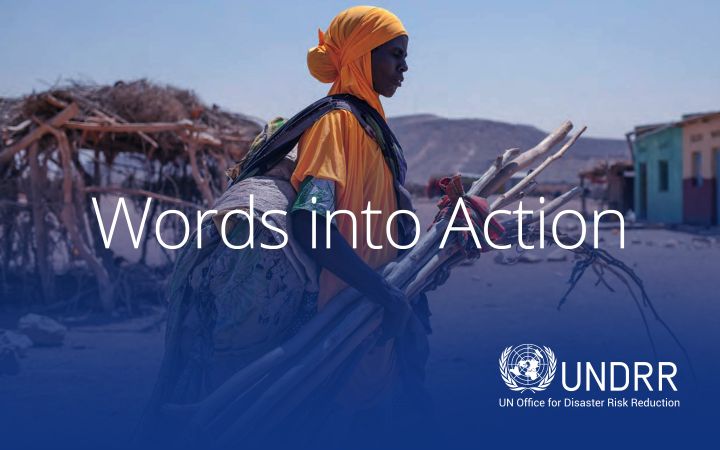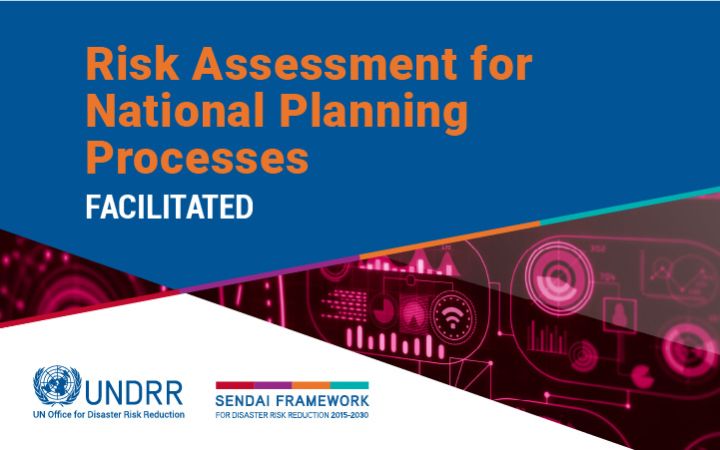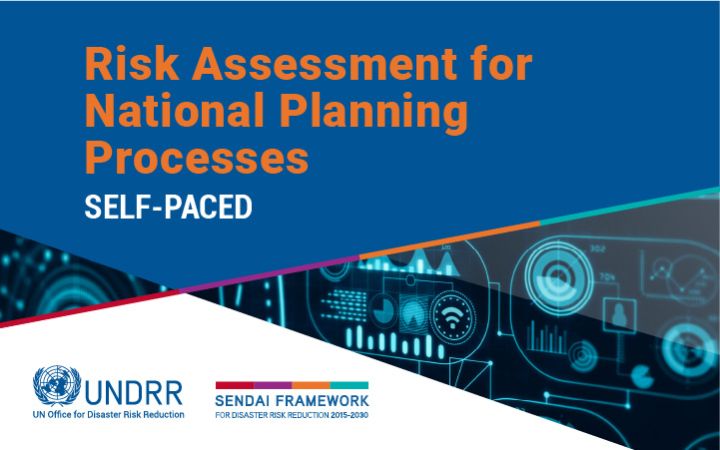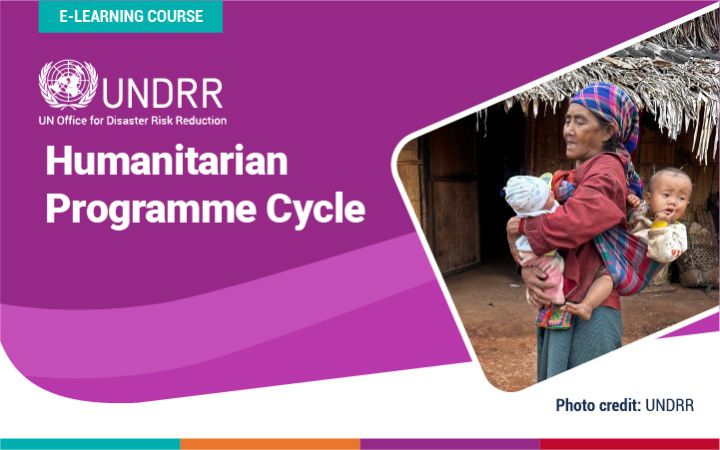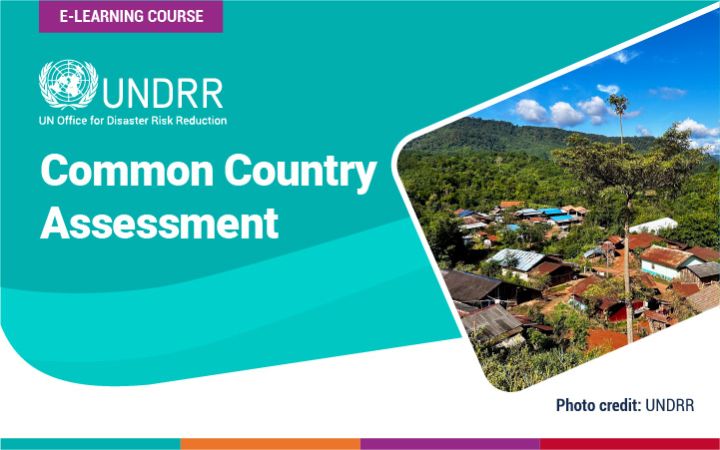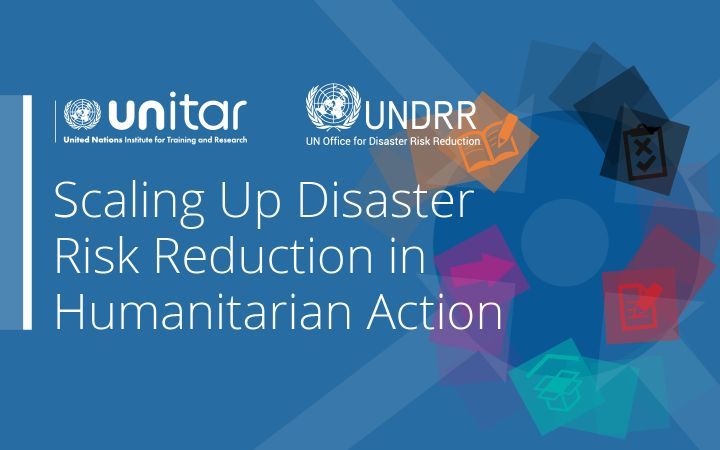Words into Action: National Disaster Risk Assessment
The United Nations Office for Disaster Risk Reduction (UNDRR) has commissioned the development of guidelines on National Disaster Risk Assessment (NDRA) as part of its “Words into Action” initiative. These guidelines aim to support the national implementation of the Sendai Framework for Disaster Risk Reduction 2015-2030 by addressing the Framework’s first priority: understanding disaster risk.
This course provides a comprehensive overview of the policy objectives, governance structures, and processes involved in designing, implementing, and utilizing national disaster risk assessments. They emphasize the importance of integrating both intensive and extensive risk considerations, ensuring that disaster risk management aligns with sustainable development goals and addresses the impacts of climate change.
Audience: Leads of NDRA authorities, National Government Ministries, related National Technical Institutions (such as hydrometeorological department), practitioners of Disaster Risk Management at national, subnational, and local levels. This includes regional and global development institutions, technical experts, academics, and research centers on knowledge creation.
Language: English
Learning Objectives:
- Develop a detailed disaster risk assessment plan using NDRA guidelines that incorporates risk considerations, addressing the needs of all government levels and sectors.
- Implement practical disaster risk assessment plan by transforming knowledge into actionable plans.
- Apply a step-by-step approach to execute NDRA strategies that demonstrate alignment with national governance frameworks.
- Demonstrate proficiency in using the NDRA detailed tool annexes as practical tools and apply the guidelines effectively in various disaster risk assessments for specific sectors, regions, and real-world disaster risk management scenarios
Approximate training hours: 2.5 hours
Risk Assessment for National Planning Processes (Facilitated)
This course provides an overview of the importance of risk analysis for disaster risk reduction, particularly its relevance during the Humanitarian Programme Cycles and the creation of Common Country Assessments. The course explores diverse tools and services offered by UNDRR that support risk analysis.
Audience: The facilitated version of this course is targeted at UN Resident Coordinators and high-level government officials.
Language: English
Objectives
- Understand the value of risk analysis in national planning processes.
- Plan for integration of improved risk analysis in planning documents.
- Identify and use tools to enrich risk analysis
Approximate training hours: 1 hour.
Click here to register for the Facilitated version of the course
Risk Assessment for National Planning Processes (Self-paced)
This course provides an overview on the importance of risk analysis for disaster risk reduction, particularly its relevance during the Humanitarian Programme Cycles and the creation of Common Country Assessments. The course explores diverse tools and services offered by UNDRR that support risk analysis.
Audience: The self-paced version of this course is targeted at professionals with minimal knowledge of risk analysis.
Language: English
Learning Objectives
- Understand the value of risk analysis in national planning processes.
- Plan for integration of improved risk analysis in planning documents.
- Identify and use tools to enrich risk analysis
Approximate training hours: 1 hour.
Click here to register for the Self-paced version of the course
Humanitarian Programme Cycle
This course provides an overview of the importance of risk analysis and the application of a forward-looking approach and evidence-based analysis during the Humanitarian Programme Cycles and the development of Humanitarian Needs Overviews and Humanitarian Needs Response Plans.
Audience: Humanitarian Country Teams and New Humanitarian Country Teams.
Language: English
Learning Objectives
- Explain the importance of the use of a risk-sensitive approach in the formulation of Humanitarian Needs Overviews.
- Outline the key stages of the Humanitarian Programme Cycle and several options for integrating a risk lens and/or disaster risk reduction actions in each.
- Develop a multidimensional risk analysis for discussions and validation in a workshop setting.
- Plan and prepare a risk analysis workshop for Humanitarian Needs Overview.
- Summarize findings and write up drafts of the Humanitarian Needs Overviews Chapters.
Approximate training hours: 3-4 hours.
Common Country Assessment
This course provides an overview of the importance of risk analysis and the application of a forward-looking approach and evidence-based analysis during the United Nations Sustainable Development Cooperation Framework processes and the development of Common Country Assessments.
Audience: United Nations Country Teams.
Language: English
Objectives
- Explain the importance of the use of a risk-sensitive approach in the formulation of Common Country Assessments.
- Describe the importance of risk analysis in the United Nations Sustainable Development Cooperation Framework processes.
- Develop a multidimensional risk analysis for new Common Country Assessments and its updates for discussions and validation in a workshop setting.
- Plan and prepare a risk analysis workshop for Common Country Assessments.
- Summarize findings and write up drafts of the Common Country Assessments risk chapters respectively.
Approximate training hours: 3-4 hours.
Checklist on Scaling Up Disaster Risk Reduction in Humanitarian Action
The United Nations Institute for Training and Research (UNITAR), the United Nations Office for Disaster Risk Reduction Office for Northeast Asia (UNDRR ONEA), along with its Global Education and Training Institute (GETI) are offering this e-learning course to serve as a tool to guide humanitarian action in adopting a risk-sensitive approach when planning humanitarian needs and responses.
Audience: Persons, government agencies, and advocates who seek to understand the urgency and importance of strengthening cooperation between humanitarian, development, and peace actors to enable long-term reduction of vulnerabilities.
Language: English
Learning Objectives:
- Define the concepts of humanitarian action and disaster risk reduction and explain their importance in reducing the impact of disasters on communities.
- Analyze the causes and consequences of disasters and assess the factors contributing to vulnerability and resilience.
- Evaluate the different approaches to disaster risk reduction, including prevention, preparedness, response, and recovery, and identify the best practices and lessons learned.
- Be familiar with the Checklist on Scaling up DRR in Humanitarian Action: Supporting Risk-Informed Programming and Humanitarian-Development-Peace Collaboration.
- Identify the key actors involved in humanitarian action and disaster risk reduction and describe their roles and responsibilities.
- Understand the urgency and importance of strengthening cooperation between humanitarian, development, and peace actors to enable long-term reduction of vulnerabilities.
- Apply the principles of humanitarian action and disaster risk reduction to real-life situations using case studies.
- Design and implement effective disaster risk reduction strategies and programs, considering the needs and perspectives of different stakeholders and the local context.
Dates: 2024 Session: Feb 01.2024 until December 31.2025
CONTACT INFORMATION
For inquiries about the courses, please contact:undrr-incheon@un.org


